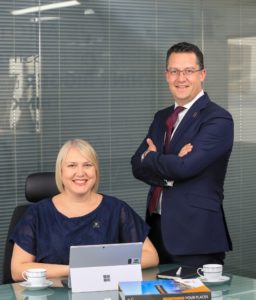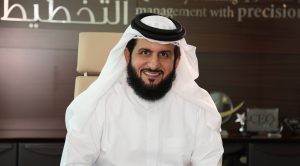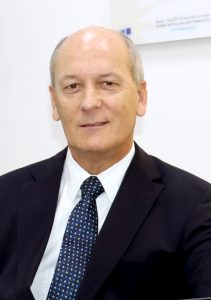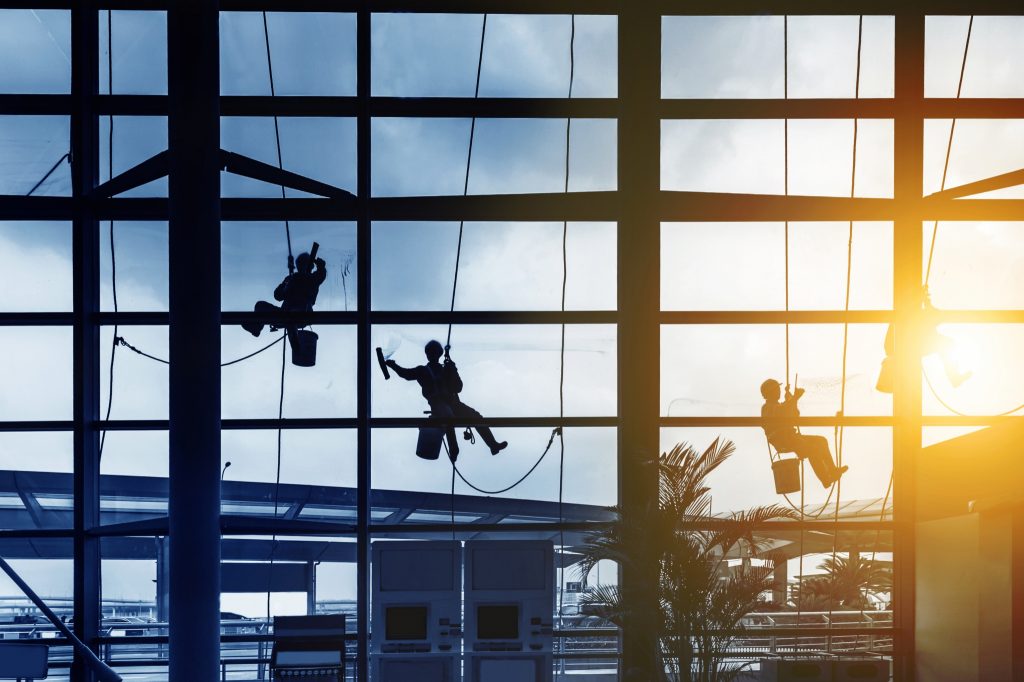Over the past decade, the GCC region has witnessed rapid economic development and demographic changes, which coupled with a rise in per capita income has fuelled the demand for residential units in the region. This, along with increasing construction activities and the growing tourism industry in the GCC countries, have boosted the growth of the facilities management (FM) market in the region.
According to research company TechSci, the UAE FM Market is to grow at 9% during 2016 – 2021. The value of FM services in the country was estimated at $11.26bn in 2016 and was expected to reach $12.5bn in 2017 and up to $17bn in 2021.

As Emrill operates across the UAE, the provider is responsible for some of the key destinations within the UAE including Dubai Opera, The Beach, La Mer, while its residential portfolio includes Jumeirah Golf Estate, Arabian Ranches, and the world’s tallest residential tower, Princess Tower. Harrison mentions: “Our master community teams welcome millions of visitors to Dubai Marina and Downtown, while we also welcome millions of visitors at the Dubai International Airport. We have a healthy pipeline with both our existing partners and some new prospects, and a natural focus for us is both the direct but also the indirect opportunities that will be created as Expo 2020 approaches.”
During the second half of 2018, we must remain focussed on our key business outcomes.
2018 placed a bigger focus on incorporating technology in the FM market in the region for better prosperity in the future. Experts are of the opinion that as new disruptive technologies continue to transform the FM industry around the world, the regional FM sector has started investing more on technology and innovations, especially on computer-aided facilities management (CAFM), field force management, Internet of Things (IoT), and customer feedback systems. In addition, significant investments are being made towards embracing robotics and sophisticated machines in soft services as well as energy analytics platforms.

“The introduction of IoT and data analytics may gradually redefine the conventional corrective, reactive, and preventive maintenance model and offer solutions based on predictive maintenance. At Imdaad, we are in the final trial phase of an IoT-based system which will create automatic work orders based on energy consumption patterns of various key assets.”
Imdaad has won a number of high-profile projects in recent months, including the entire portfolio of the First Abu Dhabi Bank in Abu Dhabi, an integrated FM contract with Aabar Properties for its premium residential community, and a five-year hard FM services contract with Dubai Safari.
We are currently working on multiple projects that are in various stages of tendering and evaluation.
Meanwhile, the Middle East Facility Management Association (MEFMA) has forecast that the value of Saudi Arabia’s FM market is expected to reach $49.8bn by the end of 2030. FM companies, it says, helps increase the competitiveness of the local commercial and industrial enterprises by enabling businesses to focus on their core operations. Additionally, capital infused by global FM companies could further catalyse growth in the local services sector and, thus, generate considerable employment opportunities.
The report also states that the expansion of small to medium scale FM providers will help stimulate the development and promotion of KSA’s small and medium enterprises. The study also tackles the local FM industry landscape to present many market opportunities.
Initial Saudi Group, one of the leading FM companies in the Kingdom, has been successful in winning three major projects during the first half of 2018. Some of their major projects include Emaar the Economic City at King Abdulla Economic City in Western Saudi Arabia; IFM across three residential communities with approximately 3,500 residential units; SABIC- facilities maintenance and cleaning in Jubail and Yanbu sites for SABIC; cleaning and maintenance for Jebel Omar Development Company at Makkah; cleaning for all terminals at Riyadh International Airport; and a number of real estate residential and commercial developments.

We invest in technology at Initial as it is a powerful resource in the FM industry now.
“Through the increased use of M2M Technology and CAFM systems, FM managers are able to streamline the management of buildings maintenance activities to increase the efficiency and provide greater return on investment (ROI).”
Future outlook
Despite talks around the economic situation in the region, the FM service sector continues to grow in scale and maturity. As major infrastructure developments continue to gain pace, the growing demand for FM services has never been more essential. Lootah from Imdaad predicts a sustained momentum and says: “We are currently working on multiple projects that are in various stages of tendering and evaluation, and we are confident of sustaining the momentum through 2018 by leveraging our expertise and performance excellence. Internally, multiple realignments are in process to focus more on technology, and we are also training our workforce to ensure our valued customers receive added value and improved services.”
While in Saudi Arabia, Initial Saudi Group is currently tendering for another large infrastructure project in Western KSA, which if successful, will mobilise in early 2019. Smylie adds: “With the rise in real estate developments across the region, we have a few major projects calling for quality FM services. The progressive infrastructure environment is encouraging and will greatly diversify our service and enable us to build on our own support infrastructure which will be critical to ensuring quality support and confidence in service delivery.”
Over the course of 2017, Emrill, announced contract wins and renewals of over $135mn, including the Bvlgari Branded Residence, Mansions and Resort, Marina Gate 1, The Hills, Town Square Dubai, and La Mer, among a broad range of industry sectors including aviation, master communities, retail, industrial, and residential projects totaling $67mn.
Harrison concludes: “During the second half of 2018, we must remain focussed on our key business outcomes. Of course, this revolves around excellent service delivery to our customers and partners, something that we must always remain focussed on. In addition, we will continue to deploy our digitalisation strategy across a number of our sites and will see increasing trials of new technologies to support our efficiency drive. We also have a number of new developments to mobilise; working with our customers, we will ensure these buildings enter their operational phase seamlessly for the end user.”




